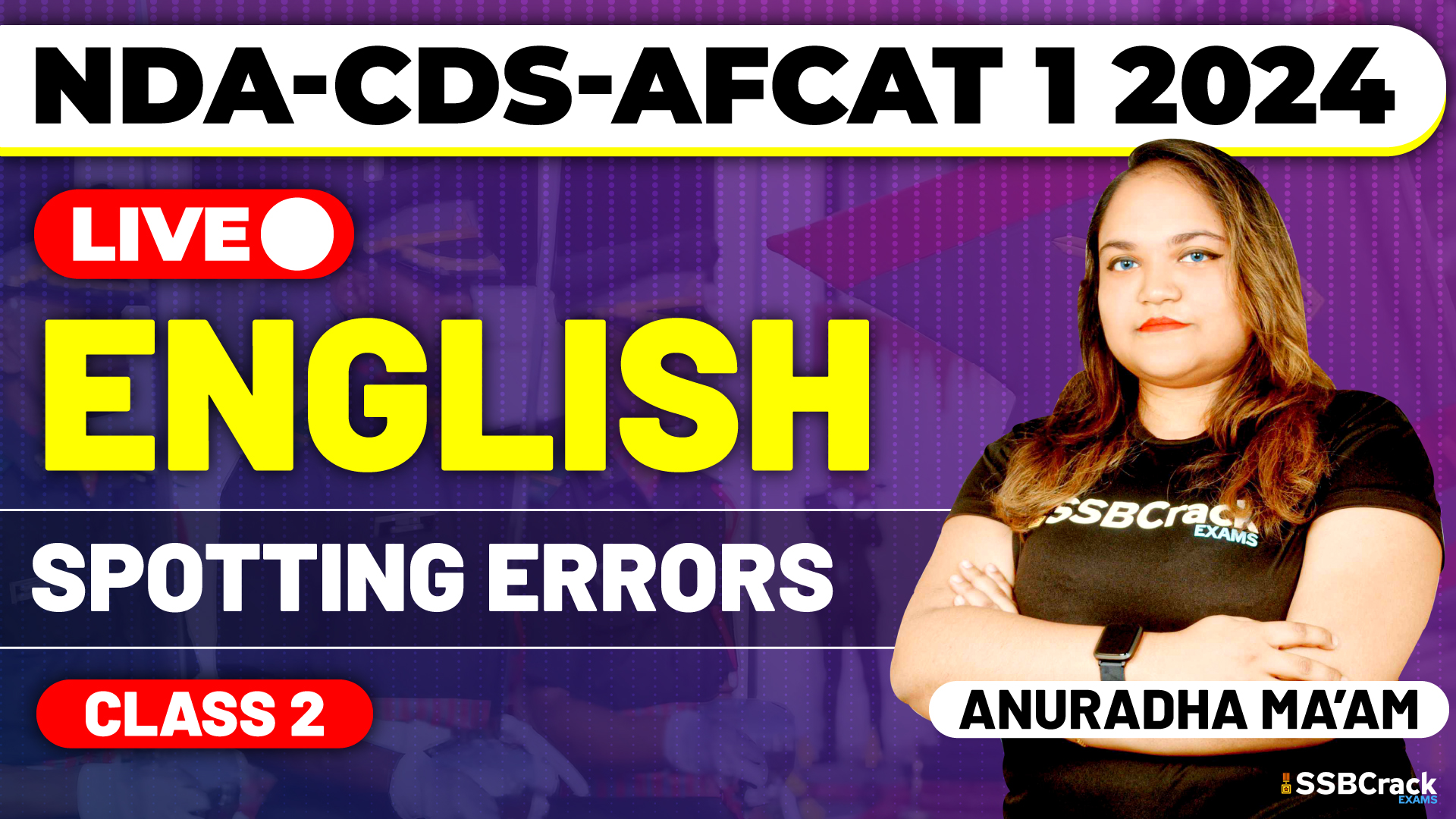The English section of competitive exams for defense services, such as the National Defence Academy (NDA), Combined Defence Services (CDS), and Air Force Common Admission Test (AFCAT), is a make-or-break component for aspirants. Among the various segments that challenge candidates’ language proficiency, the “Spotting Errors” section stands out as a crucial battleground. In a recent live class, we delved into multiple-choice questions on spotting errors, emphasizing the significance of this skill for aspiring officers in the armed forces.
Importance of Spotting Errors:
- Precision in Communication: Effective communication is a cornerstone of military operations. The ability to spot errors in written communication is indicative of a candidate’s precision in language use. In the field, officers must convey instructions clearly, leaving no room for misinterpretation. Spotting errors ensures that candidates are equipped with the language skills necessary for seamless communication.
- Decision-Making Under Pressure: The defense environment demands quick thinking and adaptability. Spotting errors in real-time, whether in spoken or written communication, hones candidates’ ability to make swift decisions under pressure. This skill is invaluable in scenarios where split-second choices can have far-reaching consequences.
- Cultivating Attention to Detail: Spotting errors is not just about identifying blatant mistakes but also about honing an eye for detail. Military operations require officers to analyze information meticulously. The errors presented in these exams often demand a nuanced understanding of grammar and syntax, fostering candidates’ attention to detail.
- Maintaining Operational Integrity: Miscommunication can be detrimental to the success of a mission. By cultivating the ability to spot errors, candidates contribute to maintaining operational integrity. Clarity in written and verbal communication is paramount, and officers must be adept at ensuring their messages are free from grammatical inaccuracies that could lead to misunderstandings.
- Enhancing English Language Proficiency: The spotting errors section not only assesses candidates’ grammatical skills but also reflects their overall command of the English language. In the global landscape of defense, where collaboration with international counterparts is common, a strong grasp of English enhances officers’ ability to interact effectively on a broader scale.
Strategies for Success:
- Interactive Learning: Live classes provide an interactive platform for candidates to engage with the material actively. Discussions on spotting errors, where questions are dissected and solutions are explored collaboratively, offer a dynamic learning experience.
- Application of Concepts: In the live class, the focus should be on applying grammatical concepts to real-life scenarios. This approach helps candidates develop a practical understanding of language use, preparing them to spot errors in diverse contexts.
- Incorporating Feedback: Live classes allow for immediate feedback. Aspirants can address doubts in real-time, fostering a deeper comprehension of the subject matter. Constructive feedback on practice questions aids in rectifying misconceptions and refining skills.
- Interactive Q&A Sessions: Encourage participation through live question and answer sessions. This not only reinforces learning but also provides a platform for candidates to clarify doubts and gain insights into different approaches to spotting errors.
Conclusion:
Spotting errors in the English section of NDA, CDS, and AFCAT exams is more than just a test of grammatical knowledge; it is a preparation for the linguistic demands of a career in the defense services. Live classes, with their interactive nature and focus on application, play a pivotal role in honing this skill. As aspirants continue their journey towards becoming officers in the armed forces, mastering the art of spotting errors becomes a defining factor in their success.







